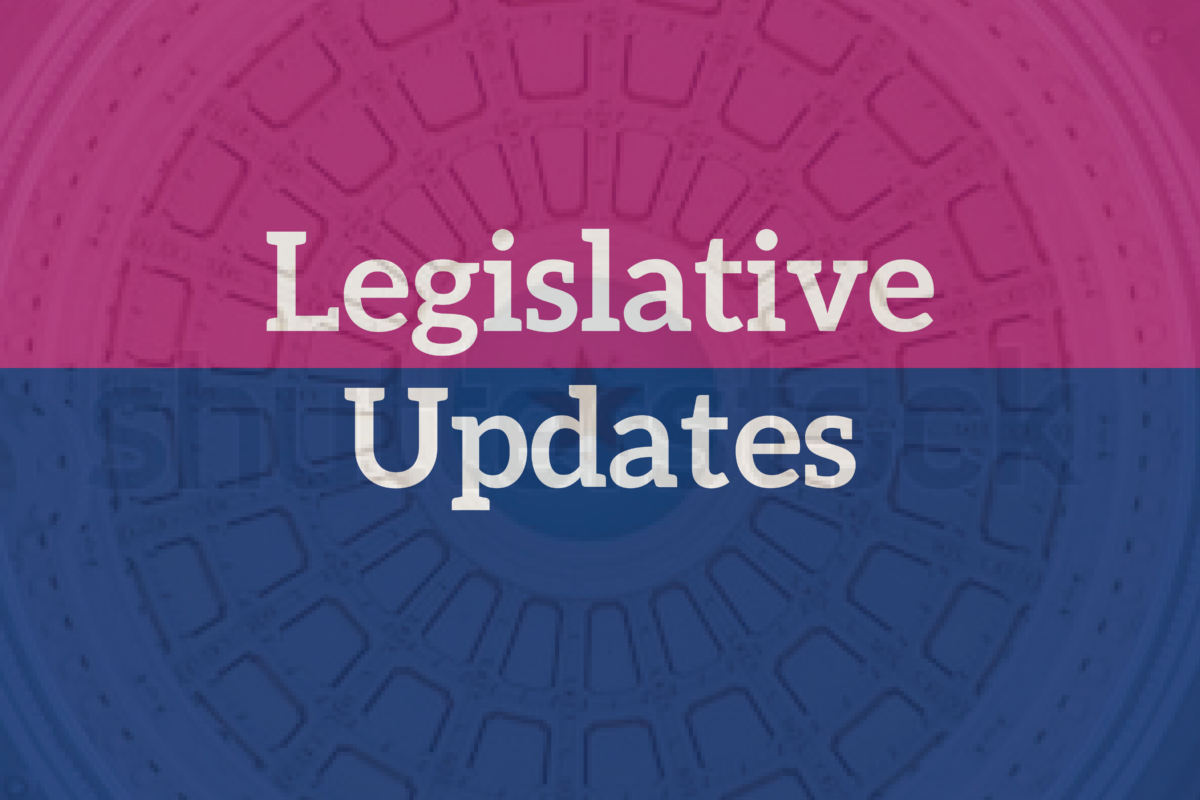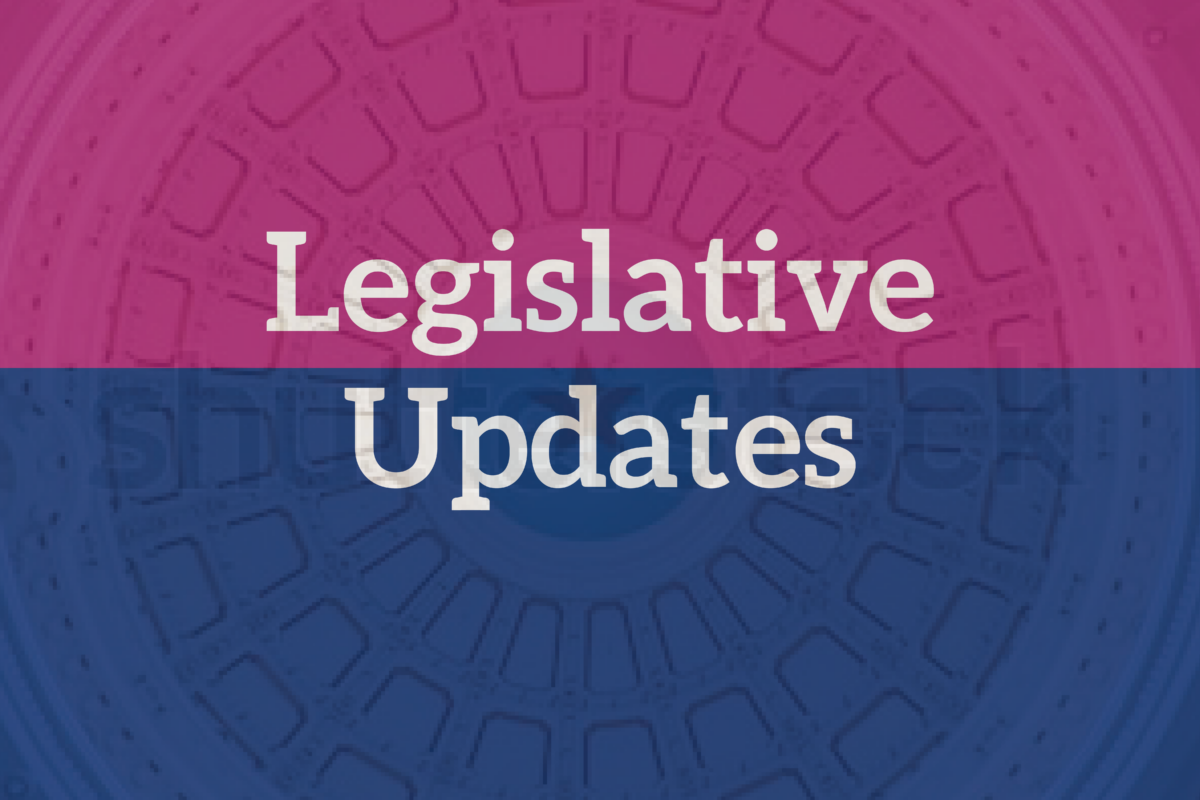
Legislative Updates
Upcoming Meetings & Events
___________________________________________________________________________________________
Legislative Updates
San Antonio Health Care Stakeholders Advocate for San Antonio State Hospital Funding
 |
|
San Antonio State Hospital Stakeholders with Senator Pete Flores (R-Pleasanton) at the Texas Capitol in Austin, Texas
|
Methodist Healthcare Ministries led efforts this week at the state Capitol to promote reconstruction funding for the San Antonio State Hospital (SASH), estimated to cost $323 million. Jaime Wesolowski, CEO, and Tony LoBasso, CFO, of Methodist Healthcare Ministries joined University Health System, Clarity Child Guidance Center, The Center for Health Care Services, NAMI San Antonio, Haven for Hope and the Bexar County Mental Health Department in a discussion with Senator Pete Flores (R-Pleasanton), who sits on the powerful Senate Finance Committee, to discuss the significance of the new hospital and its value for the thousands of South Texas residents who suffer from severe mental illness. The Senate has currently allocated $300 million for state hospital construction in their supplemental budget bill.
During the 85thInterim, the SASH Executive Stakeholder Committee worked tirelessly to look at the physical replacement of SASH and examine how care would be integrated into the community through enhanced mental health crisis/response services. The Committee collaborated with eight Local Mental Health Authorities throughout SASH’s 54-county catchment area to understand the appropriate roles and functions of a redesigned SASH, current pathways to SASH and barriers to access for both adults and adolescents. The final report of findings was submitted to HHSC in January 2019, where it was reviewed by the agency staff for final submission to the 86th Legislature.
Full reconstruction funds for the San Antonio State Hospital is a legislative priority for Methodist Healthcare Ministries and members of the SASH Executive Committee. During the 86th Legislative Session, Methodist Healthcare Ministries will work with state leaders and stakeholders to ensure funding for SASH is appropriated, along with transition services and increased funding for staff recruitment and retention efforts.
Methodist Healthcare Ministries Testifies in House Appropriations Hearings
Methodist Healthcare Ministries testified to the House Appropriations Subcommittee on Article II on budget issues related to access to health coverage, behavioral health funding and women and children’s health. Chris Yanas, MHM’s Director of Governmental Affairs, stressed the importance of funding the reconstruction of the San Antonio State Hospital, along with salary increases for competitive recruitment and retention of hospital personnel, to operate a state-of-the-art facility that will enhance the recovery of thousands of South Texans in SASH’s 54-county service area. Testimony also included support to sustain the state’s mental health grant programs and increasing services for behavioral health and substance use disorders.
Methodist Healthcare Ministries, along with several other advocates, urged legislators to provide adequate resources for continuity of care for all Texans, including funding for 12-month continuous eligibility for children in the Medicaid program and the extension of postpartum women in the Medicaid program from 60 days to 12 months postpartum. Recommendations also included increased funding for women’s health programs to promote auto-enrollment from children aging out of the Children’s Health Insurance Program (CHIP) into the Healthy Texas Women program. Methodist Healthcare Ministries will continue to submit written and oral testimony during the session on priority issues impacting the health and wellness of its 74-county service area, especially rural communities.
Methodist Healthcare Ministries Supports Children’s Mental Health Legislation
Last week, Methodist Healthcare Ministries submitted testimony in support of Senate Bill 10 by Senator Jane Nelson (R-Flower Mound), relating to the creation of the Texas Mental Health Consortium within the Texas Higher Educating Coordinating Board. With one in five Texans estimated to be impacted by a mental illness, meeting the health care needs of the population requires a coordinated system that is effective and appropriate. The development of the consortium would promote state mental health initiatives and coordinate research efforts at 12 health-related academic centers of higher education across the state.
Senate Bill 10 would also direct the consortium to create a Child Psychiatry Access Program (CPAP) to enable pediatricians and primary care providers to consult with psychiatrists at Texas medical schools for guidance and expertise. The bill would look to reduce the psychiatry workforce shortage through the Behavioral Health Workforce Expansion Project, increase psychiatric residency training and promote the use of telemedicine to expand access to mental health services. Lastly, the bill would provide judicial instruction on mental health resources, which is critical at reducing the number of youths with a mental illness from entering the criminal justice system. Senate Bill 10 was voted out of the Senate Health and Human Services Committee and placed on the Senate Intent Calendar for Monday, Feb. 25.
With about 1.9 million youths in Texas in need of behavioral health services by the age of 14, access to early treatment is imperative. Methodist Healthcare Ministries supports the passage of Senate Bill 10, aimed at leveraging the expertise of health-related universities to improve the quality and availability of mental health services, improving access to early identification and access to treatment, addressing the psychiatry workforce shortage and strengthening judicial training on mental health.
Houston Lawmaker Files Bill on Adolescent Behavioral Health Research
Texas House Public Health Committee Chairwoman Senfronia Thompson (D-Houston) filed House Bill 10 to create the Texas Mental and Behavioral Health Research Institute to be funded with voter approved bonds. HB 10 increases the number of child and adolescent psychiatrists and specialized nurses across the state, creates a telemedicine program to rapidly connect pediatricians and school health providers with trained mental health providers and creates the Texas Mental and Behavioral Health Research Institute that will focus on research to develop cures and treatments.
With more than 200 counties in Texas without a single child and adolescent psychiatrist, the legislation will create grants to incentivize newly graduated doctors and advanced practice nurses to specialize in the field. Additionally, the bill would establish a Child Psychiatric Access Line (CPAL) for mental and behavioral health care services through academic partnerships and peer-to-peer consultations. HB 10 will place Texas on the leading edge in discovering mental and behavioral health treatments through programs that research all aspects of mental health, from the brain’s structure to public health trends and medical interventions. The bill was referred to the House Public Health Committee Feb. 19 where it awaits a hearing.
Methodist Healthcare Ministries strongly supports HB 10, which will guide Texas to be a leader in addressing child and adolescent mental health issues through research, workforce development and mental health care targeted at our youth.
State Officials Confirm Measles Outbreak in Texas
The Texas Department of State Health Services reported eight cases of measles across Texas counties, including Bell, Denton, Harris, Galveston and Montgomery. U.S. health officials declared the disease was eradicated in 2000 due to the development of the measles vaccine; however recent declines in vaccination rates have put Texas communities at risk. The highly contagious disease can result in brain damage, deafness and even death, urging health authorities to promote vaccination as the most effective method to prevent the illness.
The Public Health Dynamics Laboratory created a modeling system to demonstrate the outcome if a single student with measles attends school in a given county or metropolitan area. If the measles vaccination rate fell by 10 percent, in a worst-case scenario, the number of infections could potentially increase to 12,230 cases in San Antonio, 9,103 cases in McAllen, 6, 676 cases in Laredo, 1,498 cases in Victoriaand 3,673 cases in Corpus Christi. Supporting policies and legislation that protect all Texans from vaccine-preventable diseases is a top legislative priority for Methodist Healthcare Ministries.
Upcoming Meetings & Events
Feb. 25:HHSC: State Medicaid Managed Care Advisory Committee (Austin)
Feb. 28: HHSC: Texas Statewide Health Coordinating Council (Austin)
Mar 1: HHSC: E-Health Advisory Committee (Austin)
Mar 1:San Antonio Substance Use Symposium (San Antonio)
Mar 4: Let the People Vote! Texas Rally for Medicaid Expansion (Austin)
Mar 5: Viva San Antonio Legislative Day at the Capitol (Austin)
Mar 6: Recovery Day at the Capitol (Austin)
Mar 6: Texans Care for Children’s 13thAnnual Founders Luncheon (Austin)
Mar 30: SASH Spring Thing 5K (San Antonio)
Back to Top








 At Methodist Healthcare Ministries, Bokinsky will leverage her experience and background in healthcare management, business, performance improvement and network development — including provider recruitment and retention, to enable Methodist Healthcare Ministries in further developing effective strategy to guide the organization into the next decade.
At Methodist Healthcare Ministries, Bokinsky will leverage her experience and background in healthcare management, business, performance improvement and network development — including provider recruitment and retention, to enable Methodist Healthcare Ministries in further developing effective strategy to guide the organization into the next decade.














